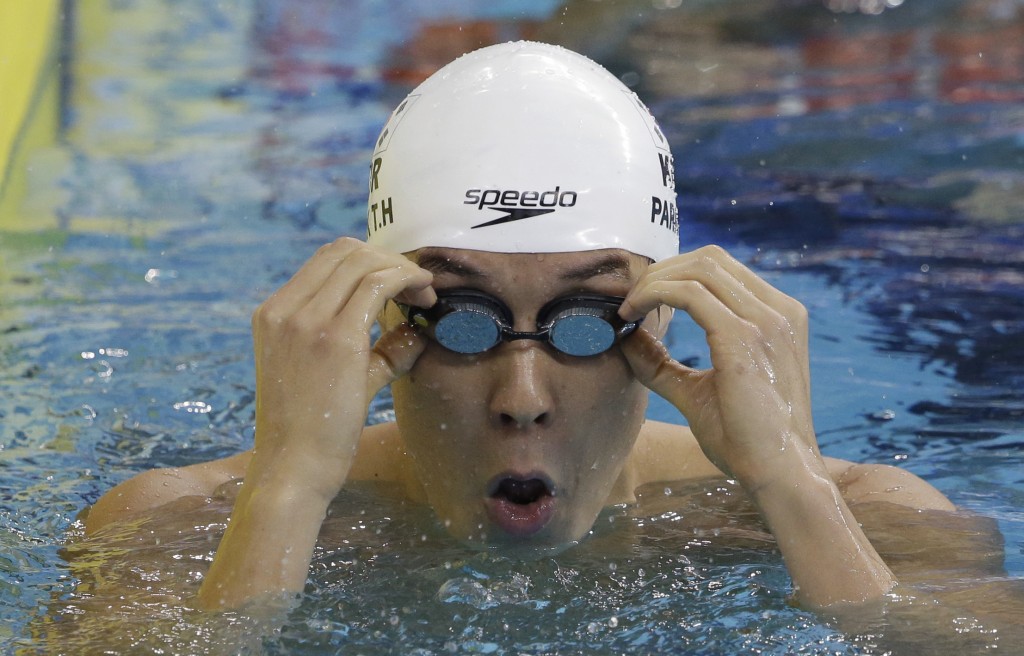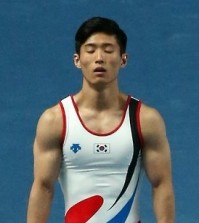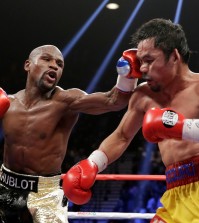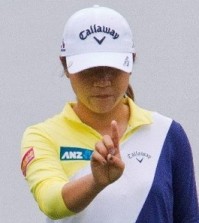- California Assembly OKs highest minimum wage in nation
- S. Korea unveils first graphic cigarette warnings
- US joins with South Korea, Japan in bid to deter North Korea
- LPGA golfer Chun In-gee finally back in action
- S. Korea won’t be top seed in final World Cup qualification round
- US men’s soccer misses 2nd straight Olympics
- US back on track in qualifying with 4-0 win over Guatemala
- High-intensity workout injuries spawn cottage industry
- CDC expands range of Zika mosquitoes into parts of Northeast
- Who knew? ‘The Walking Dead’ is helping families connect
Can Park Tae-hwan get back on track to 2016 Olympics?

South Korea’s Park Tae-hwan adjusts his goggles after competing a men’s 200-meter freestyle swimming heat at the 17th Asian Games in Incheon, South Korea, Sunday, Sept. 21, 2014. (AP Photo/Lee Jin-man)park tae
By Nam Hyun-woo
Disgraced swimming star Park Tae-hwan recently resumed training for an elusive chance to represent Korea at the Rio de Janeiro Olympics next year.
After being slapped with an 18-month doping suspension, Park first swam in a 50-meter pool on June 1 and told reporters “I will prepare myself to grab the chance when it comes.”
As Park said, the window for his Rio bid is not fully closed and there is still an ongoing debate whether he should be given a second chance.
Here are some points to consider relative to whether Park will participate in a competitive race again.
Eligibility
Park failed an International Swimming Federation (FINA) doping test on Sept. 3, 2014, as he tested positive for testosterone, a substance banned by the World Anti-Doping Agency; and on March 23 faced an 18-month suspension, which backdated to that positive test and will be effective until March 2 next year.
Under this decision, Park is eligible for the Rio Games swimming events, which are scheduled to take place from Aug. 6 to 13. But a Korean Olympic Committee (KOC) regulation bars him from his Rio bid.
In the July 2014 ruling, the KOC states that, “an athlete who faced a punishment by the KOC or other sports federations for using or promoting banned substances cannot represent Korea until three years from the date that his or her punishment expires.”
Despite the rule preventing Park from the 2016 Games, there are lingering expectations for a Rio Games return because this is a KOC rule that can be amended at the committee’s discretion.
The KOC has yet to make any stance whether it will change the rule, reiterating that, “It will prudently consider after reviewing national sentiment and current regulations,” but the legal community claims that the rule can be deemed “double jeopardy,” thus it should be thrown out.
In 2011, the International Court of Arbitration for Sport handed down a decision that an International Olympic Committee’s so-called “Osaka rule,” which bans athletes who had served a suspension of more than six months from the next Olympic Games, saying the rule violated the principle of double jeopardy. The IOC accepted the decision and advised national Olympic committees about the ruling.
Should the KOC change the rule, watchers expect it will likely be after November.
For Park, the Rio Games is a crucial point when it comes to the rest of his career. If he is banned, the chances of Park swimming at a future Olympics become extremely slim, given his age of 25 and already declining competitiveness.
Park claimed four golds at the National Sports Festival in October and November, but at the Incheon Asian Games held months before he appeared to be past his prime, clinching one silver and five bronzes, which the Olympic Council of Asia said Monday it will strip from Park.
Who is Roh Min-sang?
The 18-month ban automatically forbids Park from participating in a training camp, exhibition or practice organized by the Korea Swimming Federation (KSF).
After a complex interpretation on FINA’s punishment, Park, who was seeking an Olympic-size pool, learned that he can train on his own as a general member — not as an athlete — of his former coach Roh Min-sang’s club at the Olympic Swimming Pool, and he resumed his training on June 1.
Park paid a 300,000 won membership fee to join the club and spent about 90 minutes in the water.
FINA prohibits Park from “participating in any capacity in a competition or activity (other than authorized anti-doping education or rehabilitation programs) authorized or organized by FINA, any FINA member organization, or a club or other member organization of a FINA member organization, or in competitions authorized or organized by any professional league or any international or national level competition organization.” Since the KSF does not authorize any kinds of swimming clubs, Park’s activity does not conflict with FINA’s regulation, the KSF said.
The same goes for coach Roh. Roh is running the club as a private person, thus Park’s first reunion with Roh since the 2010 Asian Games does not cause any problem, according to the KSF.
Roh coached the national swimming team at the 2006 Doha Asian Games, the 2010 Guangzhou Asian Games and the 2008 Beijing Olympics where Park clinched a gold in the 400-meter race. Roh coached Park from an early age and took the national team job in 2006 for nurturing Park into one of the greatest swimmers in Korea. After Park was embroiled in his doping scandal, Roh has said publicly that, “Park should be given a second chance for his service to Korean swimming.”
National sentiment
The biggest obstacle for Park’s Olympic bid is the national sentiment against him.
After his failed doping test, Park, who was once regarded a national hero, has become a target of criticism. He earlier apologized to the public for his failure, but it wasn’t enough to soothe the public anger against him.
As photos of Park visiting the Olympic Swimming Pool on June 1 emerged, comments followed suggesting Korea is being lenient with him. An Internet user, who identified herself as Cho Hee-yeon, who won the 1998 Bangkok Asian Games gold in 200-meter butterfly, criticized Park’s seeking a 50-meter pool, saying, “I trained in a much harsher environment, but I won the gold.”
Park is still in a legal battle with a Seoul doctor who gave him the injection and was indicted on charges of professional negligence. It has yet to be confirmed whether Park intentionally got the hormone injection, but many believe he has been properly punished, while others claim that Park also could be a victim.
Before he joined Roh, Park reportedly contacted a number of swimming pools with 50-meter lanes in and outside of the country but was repeatedly rebuffed. To use an Olympic swimming pool, Park also had to receive agreements from the 33 parents of Roh’s swimming club members.
Though he continues to face harsh criticism, Park told reporters, “I’m not trying to clean my name at the Olympics, but just want to compensate my country if I am given a chance.”

















2017
December 20, 2017 at 5:42 PM
10 4 truck magazine